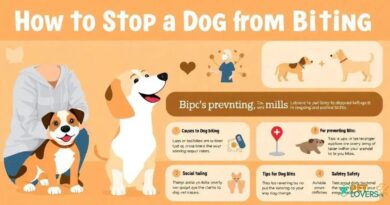What is Vacinas
What is Vacinas?
Vacinas, or vaccines, are biological preparations that provide acquired immunity to a particular infectious disease. In the context of dogs, vaccines are crucial for preventing various diseases that can affect their health and wellbeing. Vaccination is a proactive measure that helps protect not only the individual dog but also the broader canine population by reducing the spread of contagious diseases.
The Importance of Vaccination for Dogs
Vaccination plays a vital role in maintaining the health of dogs. It helps to prevent diseases such as rabies, parvovirus, distemper, and hepatitis, which can be severe or even fatal. By vaccinating dogs, pet owners can ensure that their furry companions are safeguarded against these illnesses, contributing to a longer and healthier life. Moreover, vaccinations can also help in controlling outbreaks of diseases within communities.
Types of Vaccines for Dogs
There are two main types of vaccines for dogs: core vaccines and non-core vaccines. Core vaccines are those that are recommended for all dogs, regardless of their lifestyle or environment. These typically include vaccines for rabies, distemper, parvovirus, and adenovirus. Non-core vaccines, on the other hand, are given based on the dog’s risk of exposure to certain diseases, such as Bordetella (kennel cough) and Lyme disease. Understanding the difference between these types is essential for responsible pet ownership.
How Vaccines Work
Vaccines work by stimulating the dog’s immune system to recognize and fight off specific pathogens. When a vaccine is administered, it introduces a harmless component of the disease-causing organism, such as a weakened or inactivated virus or bacteria. This prompts the immune system to produce antibodies, which remain in the body and provide protection against future infections. This process is known as immunization, and it is a critical aspect of a dog’s health management.
Vaccination Schedule for Dogs
A vaccination schedule is essential for ensuring that dogs receive their vaccines at the appropriate times. Puppies typically start their vaccination series at around six to eight weeks of age, with booster shots given every three to four weeks until they are about 16 weeks old. Adult dogs require regular booster vaccinations to maintain their immunity. It is important for pet owners to consult with their veterinarians to establish a personalized vaccination schedule based on their dog’s specific needs and lifestyle.
Potential Side Effects of Vaccination
While vaccines are generally safe, some dogs may experience mild side effects after vaccination. Common reactions include slight fever, lethargy, and localized swelling at the injection site. These side effects are usually temporary and resolve on their own within a few days. However, in rare cases, dogs may experience more severe reactions, such as allergic responses. Pet owners should always monitor their dogs after vaccination and consult a veterinarian if they notice any concerning symptoms.
Vaccination Myths and Misconceptions
There are many myths and misconceptions surrounding dog vaccinations. Some pet owners may believe that vaccines are unnecessary or that they can cause more harm than good. However, the benefits of vaccination far outweigh the risks. Vaccines are thoroughly tested for safety and efficacy before being approved for use. Educating pet owners about the importance of vaccinations can help dispel these myths and encourage responsible pet care.
Traveling with Vaccinated Dogs
When traveling with dogs, especially to different regions or countries, it is crucial to ensure that they are up-to-date on their vaccinations. Many places require proof of vaccination, particularly for rabies, to prevent the spread of diseases. Additionally, being vaccinated can protect dogs from exposure to illnesses they may encounter in new environments. Pet owners should always check vaccination requirements before traveling and consult their veterinarian for any additional recommendations.
The Role of Veterinarians in Vaccination
Veterinarians play a key role in the vaccination process for dogs. They assess the dog’s health, determine the appropriate vaccines based on age, lifestyle, and risk factors, and administer the vaccines. Veterinarians also provide valuable information to pet owners about the importance of vaccinations and help them understand the vaccination schedule. Building a strong relationship with a veterinarian is essential for ensuring that dogs receive the best possible care throughout their lives.




